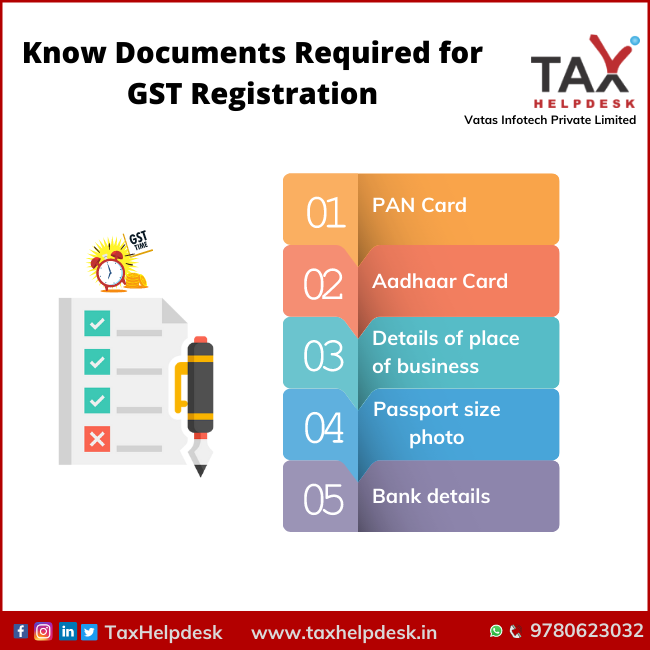Why Singapore GST Registration is Crucial for Your Startup
Why Singapore GST Registration is Crucial for Your Startup
Blog Article
The Ultimate Guide to Streamlining the GST Enrollment Process and Demands for Small Company Owners

Recognizing GST Essentials
To understand the fundamentals of the Product and Services Tax Obligation (GST) system, little business proprietors should first comprehend its underlying ramifications and principles. Under the GST routine, services are required to sign up and gather tax obligation on behalf of the federal government, making sure transparency and conformity.
Among the key concepts of GST is input tax credit rating, which permits services to claim credit rating for tax obligations paid on their purchases. This system avoids the plunging impact of tax obligations and promotes performance in the tax system. In addition, GST is a destination-based tax, indicating that the tax obligation is imposed at the factor of usage as opposed to the point of beginning. This ensures reasonable circulation of tax profits among states based upon where the services or products are taken in. Understanding these fundamental concepts is crucial for small company owners to navigate the intricacies of the GST system and make sure conformity with the law.
Eligibility Requirements for Registration
Having established a foundational understanding of GST principles, local business owners must currently fulfill details qualification standards to continue with the enrollment procedure. In India, entities engaged in the supply of goods or services with an annual accumulation turn over going beyond Rs. 40 lakhs (Rs. 10 lakhs for unique category states) are required to sign up for GST. In addition, specific businesses such as those associated with inter-state supply of items, laid-back taxable persons, and those called for to pay tax obligation under the reverse fee system should sign up for GST regardless of their turnover. Additionally, businesses that were signed up under the previous tax obligation program (VAT, service tax obligation, and so on) are likewise mandated to register under GST. Farming organizations that just supply generate out of key manufacturing are exempt from GST enrollment. It is critical for entrepreneur to meticulously analyze their qualification based upon these standards to make sure conformity with the legislation and stay clear of any type of charges for non-compliance.
Papers Needed for GST Registration

Simplified Enrollment Process Steps
Following the collection and confirmation of the requisite records, the registration process for GST can be navigated with a series of streamlined steps designed to promote reliable compliance for tiny service owners. The very first step involves checking out Recommended Reading the GST portal and picking the 'New Registration' alternative. Ultimately, the applicant has to fill up in Component A of the GST REG-01 type with information such as PAN, mobile number, and e-mail address to acquire an OTP for confirmation. Once the OTP is gotten and entered, a Short-lived Reference Number (TRN) is created for further procedures. The following step calls for completing Component B of the form with needed business details, uploading supporting papers, and finishing the verification procedure making use of DSC or EVC. Lastly, upon effective confirmation, an Application Recommendation Number (ARN) is released, indicating the completion of the GST enrollment procedure. By complying with these streamlined actions, small company proprietors can efficiently sign up for GST and ensure compliance with tax obligation laws.
Tips for Ensuring Conformity
To keep governing adherence and functional integrity, diligent more information oversight and proactive steps are critical in making sure conformity with GST needs for tiny organization owners. Tiny organization proprietors must stay updated with GST policies, filing due dates, and any type of modifications in tax rates to avoid charges and preserve a great standing with tax obligation authorities. Going to GST understanding workshops or training programs can improve understanding and conformity with GST guidelines, eventually benefiting the business in the lengthy run.
Verdict
Finally, local business proprietors have to recognize the basics of GST, satisfy the qualification standards, collect necessary files, and comply with the streamlined enrollment process steps to make sure conformity. By streamlining the GST registration procedure and requirements, local business proprietors can prevent penalties and run their organizations efficiently within the legal structure - Singapore GST Registration. It is vital for local business proprietors to remain informed and certified with GST guidelines to maintain an effective service operation
Little business proprietors seeking GST enrollment need to guarantee they gather and send the required records to complete the enrollment process successfully. The files needed for GST registration commonly include evidence of company enrollment or incorporation, FRYING PAN (Permanent Account Number) card of the service entity, identity and address proof of the promoters/partners/directors, pictures, address evidence of the place of service, bank account statements or terminated cheques, and authorization types. Participating in GST awareness workshops or training programs can improve understanding and conformity with GST regulations, eventually profiting the organization in the long run.
By streamlining the GST enrollment process and demands, little organization owners can avoid fines and run their businesses smoothly within the lawful structure. It is crucial for little service proprietors to stay certified and informed with GST policies to preserve an effective organization operation.
Report this page